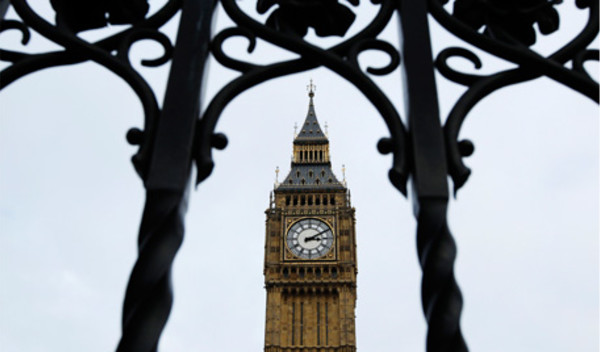

News websites have tended to avoid ‘leader’ columns giving a single, uniting view. Compared to our paper peers we are more ethereal and our readers transient.
But with an election looming it is traditional for news publications with a political purview, however limited, to give an informed view on how one might wish to vote.
In light of these competing conventions, FTAdviser has decided not to give a voting recommendation. Instead we present here five key issues that face the country today, with a bias towards the key areas of interest: individual financial wellbeing and the economy.
Few if any of the parties have provided any real answers to the challenges listed below, although some have policies that offer some form of response at least dealing with the lowest-hanging fruit.
Readers will by now be familar with manifesto commitments and other pledges. FTAdviser believes whichever parties are in power after 7 May must address the issues set out below and contribute to more comprehensive longer-term solutions.
Whichever has your confidence in these critical areas, should get your vote on Thursday.
1. Living within our means.
The UK is severely overdrawn and spends excessively.
As a nation we spent £87.3bn more than we earned the last financial year and under the coalition’s plans we will spend £75bn more than we earn in the current year. This means last year spending was more than 13 per cent higher than income and next it will be 11 per cent.
Imagine you earn £50,000 a year: you’d have borrowed £6,700 last year and will borrow £5,750 in the next 12 months. You’d be adding all of this to debts of around £100,000 that you’ve already amassed.
This is plainly not prudent. We are spending £53bn a year and rising servicing debt, which is significantly more than the defence budget, more than half of the education budget and more than a third of the health budget.
2. Spending cuts and ‘fairness’.
Restoring the public finances to health was the stated goal of the coalition when it came to power. Despite having missed its original targets, it has pursued the so-called ‘austerity’ agenda and cut the budget deficit by around a third in real terms.
There has been much criticism of where the scythe has fallen, with statistics showing the poor being disproportionately hit. Of course, that was the plan due to a range of measures to limit spending on benefits which broadly commanded popular support.
The benefits bill will be around the same in absolute terms this year as when the coalition came to power, meaning around 4 per cent a year has been ‘cut’. And this at a time when pension welfare spending, which is universal, has risen by more than 15 per cent.
This amounts to a huge transfer of wealth from the working age to a growing older generation, who have benefitted the most from a generous welfare state over the years. It cannot last.
3. Subsidising inequality.
Perhaps the most bitter pill to swallow about public spending is that it subsidises inequality.
The current minimum wage of £6.50 is not enough to live on and many people, mainly families, receive close to £30bn in child and working tax credits. A further £26bn is spent in housing benefit, with a growing proportion going to help private tenants meet spiralling rental costs.
This is a poor use of public money and we must move towards a situation where rents are within reach for most and a ‘living’ wage means working really does pay.
4. Property market excesses.
This is our least startling revelation: the property market is bonkers. Prices are too high, increasingly out of the reach of the average earner, and are ultimately unsustainable.
The average house price has more than quadrupled from £65,000 twenty years’ ago to £267,000 now, meaning it is now 10 times average annual earnings. In London it is closer to half a million pounds and around 17 times the average annual income.
The market has come to be dominated by speculators, not least buy-to-let investors who have acquired more than eight in 10 new builds completed over the past decade and more, and who benefit from £5bn in tax relief on interest.
It is positive that more homes will be built by whoever is in government, but talk is cheap. Alongside these supply-side reforms, politicians must begin to address the demand side of the equation with measures that do not simply equate to further stimulus.
5. Immigration and Europe.
Most people in the know suggest we have done well out of Europe and that it has been a force for good in the continent. That is has become bloated and sclerotic is beyond doubt, but any debate on our future must be balanced and the positives properly acknowledged.
Similar soundings are made over immigration and, again, we should attempt to build a fully rounded picture on how this affects the UK rather than giving in to fear over abstract numbers. We should also not forget our basic humanity.
We will eventually have a referendum on Europe, either in two years or when a treaty change to fix the eurozone triggers one anyway. This is democratic. Those advocating to remain within the EU’s lucrative market must find a way of re-framing the debate.



